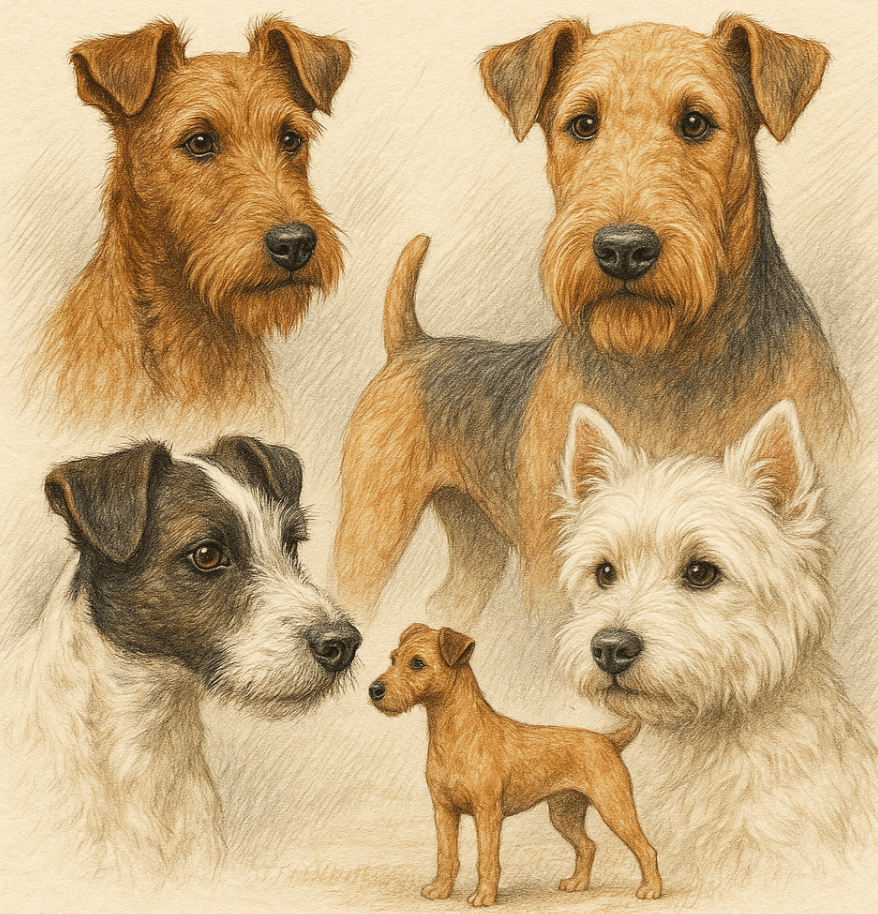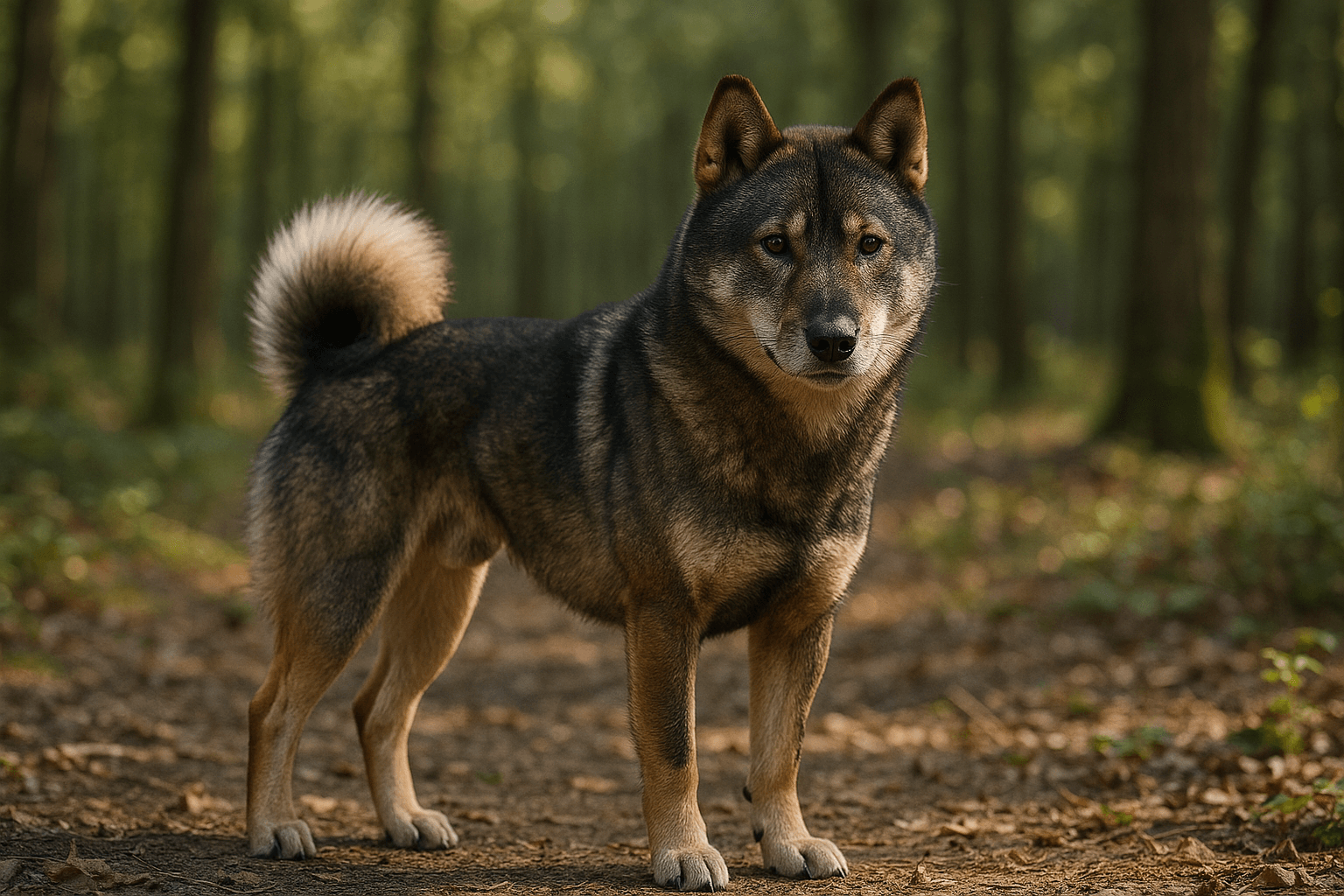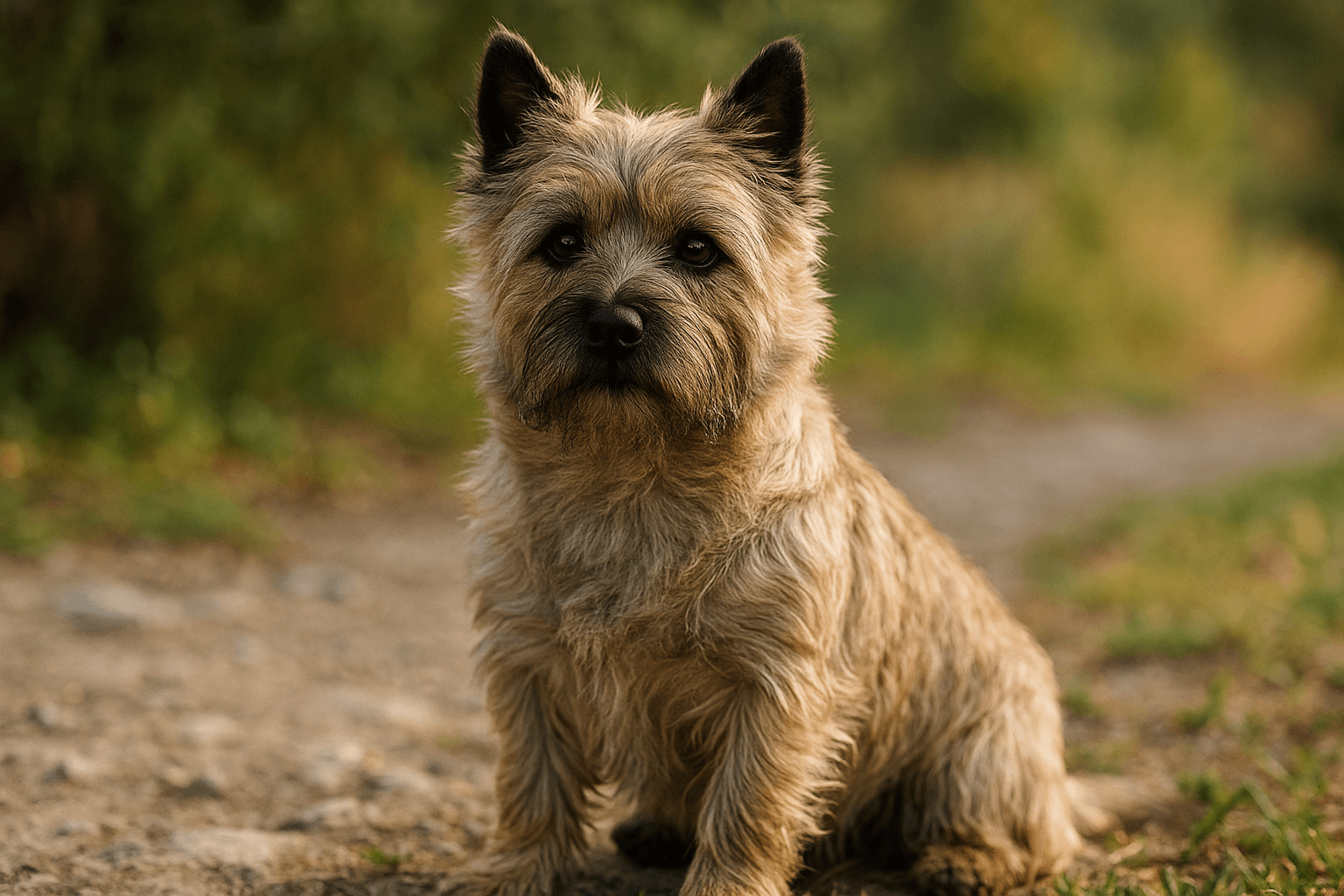Terrier Breeds: A Guide to These Energetic and Loyal Companions
Terrier breeds are among the most beloved dog breeds, known for their spirited personalities, intelligence, and unwavering loyalty. Originally bred for hunting vermin and small game, these dogs have evolved into versatile companions that thrive in various environments. From the feisty Jack Russell Terrier to the elegant Scottish Terrier, each breed within this group has its own unique charm and characteristics. Whether you’re considering adding a terrier to your family or simply want to learn more about these lively pups, this guide will explore everything you need to know about terrier breeds, including their history, traits, and care requirements.
Key Characteristics of Terrier Breeds
Terriers share several defining traits that make them stand out from other dog breeds. Understanding these characteristics can help you determine if a terrier is the right fit for your lifestyle.
High Energy Levels:
Terriers are bursting with energy and require plenty of exercise to stay happy and healthy. Daily walks, playtime, and mental stimulation are essential.Strong Prey Drive:
Bred to hunt small animals, many terriers have a natural instinct to chase, dig, and explore. This makes them excellent hunters but challenging off-leash companions.Intelligence and Stubbornness:
While highly intelligent, terriers can also be independent and stubborn, requiring consistent training and patience.Loyalty and Affection:
Despite their bold nature, terriers form deep bonds with their families and love being involved in household activities.Low Grooming Needs (for Some Breeds):
Many terriers have wiry coats that require minimal grooming, though some breeds may need regular trimming or brushing.
These shared traits make terriers both rewarding and challenging pets, appealing to owners who enjoy an active and engaging companion.
Popular Terrier Breeds and Their Unique Traits
With so many terrier breeds to choose from, it’s helpful to understand what sets each one apart. Here’s a closer look at some of the most popular terrier breeds and their distinctive qualities.
Jack Russell Terrier:
Known for their boundless energy and athleticism, Jack Russells excel in agility sports and outdoor adventures.Scottish Terrier:
With their iconic beard and dignified demeanor, Scottish Terriers are affectionate yet independent, making them great city dwellers.West Highland White Terrier (Westie):
Westies are friendly, playful, and adaptable, thriving in both urban apartments and suburban homes.Boston Terrier:
Often called the “American Gentleman,” Boston Terriers are gentle, sociable, and perfect for first-time dog owners.Bull Terrier:
Recognizable by their egg-shaped head, Bull Terriers are clownish, loyal, and thrive on human interaction.
Each breed offers something special, ensuring there’s a terrier to suit nearly every personality and lifestyle.
Check this guide 👉English Dog Breeds: Best 7 Expert Tips!
Check this guide 👉Red Hound Dog Breeds: Best 7 Expert Tips!
Check this guide 👉Types of Pointer Dog Breeds: Best 7 Expert Tips!

Best Terriers for Families | Best Terriers for Active Owners |
|---|---|
Boston Terrier | Jack Russell Terrier |
West Highland White Terrier | Border Terrier |
Scottish Terrier | Rat Terrier |
Cairn Terrier | Lakeland Terrier |
Norwich Terrier | Staffordshire Bull Terrier |
Training Tips for Terrier Breeds
Training a terrier requires patience, consistency, and creativity due to their intelligent yet stubborn nature. Follow these tips to ensure success.
Start Early:
Begin training as soon as you bring your terrier home to establish good habits early on.Use Positive Reinforcement:
Reward-based methods work best with terriers, as they respond well to treats, praise, and toys.Keep Sessions Short and Fun:
Terriers have short attention spans, so aim for 5–10 minute sessions filled with variety to maintain their interest.Address Digging Behavior:
Provide designated digging areas or use deterrents to redirect their natural instinct to dig in unwanted places.Socialize Regularly:
Expose your terrier to different people, animals, and environments to prevent fear-based aggression or shyness.
By tailoring your approach to their unique personality, you can build a strong bond while ensuring your terrier becomes a well-behaved companion.
Health Considerations for Terrier Breeds
While generally robust, terriers are prone to certain health issues that potential owners should be aware of. Regular vet check-ups and preventive care can help manage these risks.
Patellar Luxation:
Common in smaller terriers like Yorkies and Westies, this condition involves dislocation of the kneecap.Allergies and Skin Conditions:
Many terriers suffer from allergies, which can lead to itching, redness, and infections if left untreated.Dental Issues:
Small terriers are particularly susceptible to dental problems, so regular teeth cleaning is crucial.Heart Disease:
Some larger terriers, like Bull Terriers, may develop heart conditions later in life.Deafness:
Certain breeds, such as the Bull Terrier and Australian Terrier, have higher incidences of congenital deafness.
Being proactive about your terrier’s health ensures they live a long, happy life by your side.
Tips for Managing Terrier Energy Levels
Terriers are notorious for their high energy, which can sometimes feel overwhelming. Here are some strategies to help channel their enthusiasm positively.
Daily Exercise Routine:
Incorporate brisk walks, runs, or fetch sessions into your daily schedule to burn off excess energy.Interactive Toys:
Puzzle feeders and treat-dispensing toys keep terriers mentally stimulated when you’re busy or away.Agility Training:
Enroll your terrier in agility classes to satisfy their need for physical and mental challenges.Set Boundaries Early:
Teach your terrier where they’re allowed to play and dig to avoid destructive behavior indoors.Provide Chew Toys:
Offer durable chew toys to redirect their chewing instincts away from furniture or shoes.
Managing their energy effectively leads to a happier, calmer terrier—and a more peaceful household.
Grooming Needs of Different Terrier Breeds
While terriers are often low-maintenance compared to other breeds, grooming needs vary widely depending on coat type.
Wire-Haired Terriers:
Breeds like the Wire Fox Terrier benefit from hand-stripping to maintain their textured coat.Smooth-Coated Terriers:
Dogs like the Staffordshire Bull Terrier require only occasional brushing to remove loose hair.Long-Haired Terriers:
Skye Terriers and similar breeds need regular combing to prevent tangles and mats.Soft-Coated Terriers:
The Soft Coated Wheaten Terrier requires frequent brushing to keep their silky coat looking its best.Hypoallergenic Options:
Breeds like the Bedlington Terrier produce less dander, making them suitable for allergy sufferers.
Understanding your terrier’s grooming needs ensures they stay comfortable and stylish year-round.
Fun Facts About Terrier Breeds
Terriers are full of surprises, with fascinating histories and quirky traits that make them even more endearing.
Ratting Champions:
Many terriers were originally bred to control rodent populations, earning them a reputation as skilled ratters.Royal Favorites:
Queen Victoria adored Scottish Terriers, helping boost their popularity in the 19th century.Movie Stars:
Several terriers, including Toto from The Wizard of Oz (a Cairn Terrier), have achieved Hollywood fame.Versatile Workers:
Beyond hunting, terriers have been used as therapy dogs, service animals, and even circus performers.Unique Silhouettes:
From the sleek Airedale Terrier to the stocky Bull Terrier, each breed boasts a distinctive silhouette.
These fun facts highlight the rich heritage and enduring appeal of terrier breeds.
Frequently Asked Questions About Terrier Breeds
Are terriers good with children?
Many terriers are friendly and playful, but some may be too energetic or territorial for young kids. Always supervise interactions.
Do terriers shed a lot?
Most terriers shed minimally, though some breeds like the Soft Coated Wheaten Terrier require regular grooming to prevent matting.
How much exercise do terriers need?
Terriers typically need 1–2 hours of exercise daily, depending on the breed and individual energy level.
Can terriers live in apartments?
Yes, many terriers adapt well to apartment living as long as they receive adequate exercise and mental stimulation.
Are terriers easy to train?
While intelligent, terriers can be stubborn, so consistent, reward-based training is key to success.
Why Terrier Breeds Make Wonderful Companions
Terrier breeds offer a unique blend of energy, loyalty, and charm that appeals to dog lovers worldwide. Whether you’re looking for a playful partner for outdoor adventures or a cuddly companion for cozy nights at home, there’s likely a terrier breed that fits your needs perfectly. By understanding their traits, meeting their care requirements, and embracing their quirks, you’ll discover why terriers are cherished members of countless households. If you’re ready for an active, intelligent, and endlessly entertaining pet, a terrier might just be your ideal match.
Spleen Cancer in Cats: Best 7 Expert Tips! – Expert insights on symptoms, care, treatment & quality of life for feline spleen cancer.
Dog Mastitis Treatment: Best 7 Expert Tips! – Safe, vet-approved care for nursing moms & prevention strategies.
The Shikoku Ken Dog: Best 7 Expert Tips! – Discover expert care, training & health advice for this rare, loyal Japanese mountain breed.
The Cairn Terrier Dog Breed: Best 7 Expert Tips! – Discover care, training & health advice for this spirited, loyal Scottish terrier.




